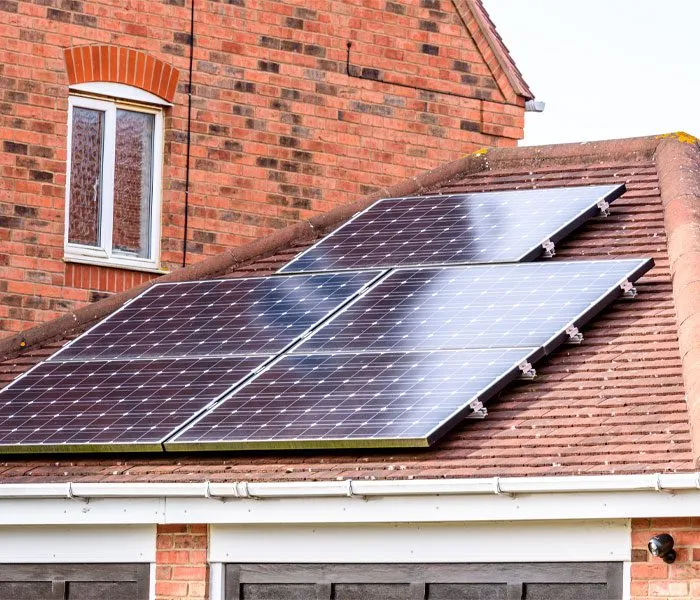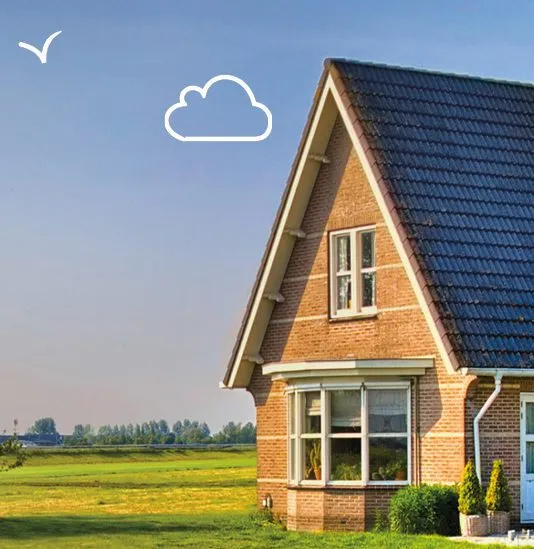The UK government has recently announced the ‘watering down’ of minimum Energy Performance Certificate (EPC) rating requirements for properties, as well as prolonging the gas boiler ban, which has provided a little more reassurance for some landlords. Previously, the government had declared it would require landlords to ensure all properties maintained a minimum of an EPC C rating by 2025 on new tenancies, and 2028 for all tenancies.
However, that has no longer been stipulated as a requirement in Prime Minister Rishi Sunak’s recent environmental address. Understandably this has frustrated some landlords who have already spent heavily on energy efficiency upgrades, while for others it has provided some reprieve for those who have yet to make such changes. This isn’t even accounting for the Labour Party’s possible reintroduction of legislation to upgrade property EPC ratings by 2025 should they earn a majority in the next general election.
It’s evident that there is some uncertainty about when landlords should make obligatory changes to underperforming properties.
For all landlords who are affected by this news, understanding and improving the eco-friendliness of your rental property should still be a top priority. While forking out potentially thousands in upfront renovation or upgrade costs may not be as imminent as before, the future is undoubtedly greener, and it seems that this change is inevitable, one way or another.
Furthermore, with rising energy costs and increasing awareness of environmental issues among renters, having an energy-efficient and sustainable rental can give you a competitive edge. In addition, it can bolster your chances of attracting future renters or prospective buyers should you decide to sell the property down the line. If you have not let out your property before now, it could be a good chance to set yourself apart from the crowd.
This article will outline steps you can take as a landlord to assess and enhance the sustainability of your property.
Assessing your rental’s energy efficiency
The first step is to get a clear picture of where your rental currently stands in terms of energy efficiency.
There are a few key things to look at:
- Energy Performance Certificate (EPC) rating – All rented properties in the UK require an EPC, which provides a rating from A (very efficient) to G (inefficient). The higher the rating, the better for attracting eco-conscious tenants. If your property is rated D or below, it’s worth considering bringing this up to a higher level.
- Energy usage – Look at utility bills and energy usage over time. Are tenants consuming more or less energy than similar properties? High energy usage indicates poor insulation, inefficient heating and cooling controls, appliances, etc.
- Heating and cooling – Old, inefficient heating and cooling systems like electric resistive heaters or HVAC units can consume a lot of energy. Upgrading to more efficient systems like heat pumps can make a big difference.
- Appliances – Take stock of the age and efficiency of appliances like fridge-freezers, washing machines, dishwashers, tumble dryers, and other electronics. Outdated models tend to consume more energy.
- Insulation – Poor insulation leads to wasted energy and higher bills as well as minimal comfort for tenants. Inspect the insulation in walls, floors, basements, cellars, attics, and so on, and upgrade where needed.
- Windows – Single-pane windows allow for more heat loss in winter and heat gain in summer. Replacing with double or triple-glazed windows improves efficiency and better heat preservation.
Steps to improve your rental’s sustainability
Once you’ve assessed where your property currently stands in terms of energy efficiency, you can then consider the highest-priority upgrades and renovations to improve its sustainability. Here are some impactful steps to take:
Install solar panels
One of the most effective ways to improve sustainability is by installing solar panels. This energy generation reduces reliance on fossil fuel-based grid power, with typical payback periods ranging between four and eight years. Solar panels have also been known to significantly boost property value and tenant appeal. Therefore, if you want an impactful and immediately beneficial solution from the outset, this installation is a strong contender. Be sure to carefully weigh installation costs and long-term savings from your investment.
Upgrade heating and cooling systems
As mentioned above, heating and cooling accounts for a major share of a rental’s energy usage. Upgrading to more efficient systems can pay dividends through lower energy bills.
- Consider ground-source or air-source heat pumps for heating and cooling in your rental property. These are much more eco-friendly than mains-powered electric heating or gas boilers, which, as we know, are gradually going to be phased out anyway.
- Install programmable smart thermostats that allow tenants to customise their heating and cooling schedules for optimum energy use when they’re inside, and less waste when they’re not.
- Ensure that your property is fitted with proper, durable insulation. This will maximise the efficiency of whatever heating and cooling solution you have implemented.
- If you still require the use of boilers, replace any old, tired boilers with condensing ones, which offer far better efficiency ratings than the former.
Improve water efficiency
High water usage leads to unnecessary energy consumption for water heating and wastewater treatment.
As should be routine in property inspections, any leaky taps or pipes should be addressed. Even small leaks can waste litres of water a month. From this, consider where water could be further preserved, such as by installing low-flow taps, showerheads or toilets.
All tenants should be mindful of their shower time and be considerate of using too much water, along with only running dishwashers or washing machines when there is a full load to be done.
Upgrade lighting
Swapping out old bulbs for LEDs, together with other eco-friendly alternatives, can reduce lighting energy use significantly. While LEDs have higher upfront costs, they last considerably longer than standard light bulbs, providing greater long-term savings. Consider installing LEDs not just in standalone lighting fixtures but also in ceiling, wall and outdoor lights (if applicable).
Just as with smart thermostats, consider installing smart lighting sensors and switches to automatically turn lights off when there is no occupant in the room. Likewise, these can be programmed to suit tenants’ individual schedules.
Choose energy-efficient appliances
When it’s time to replace appliances, spend the extra upfront cost to get the most energy-efficient models. Look for the relevant energy label and rating certificate when shopping for new appliances.
Choose inverter compressor fridge-freezers that use far less energy than conventional models found in high street retailers. Front-loading washing machines tend to use less water, condenser dryers require no outside ventilation (and thus less heat loss) and dishwashers with booster heaters reduce the energy used to heat water during cycles.
Make eco-upgrades attractive to tenants
Undertaking sustainability-focused upgrades not only helps the environment but can also make your rental more attractive to prospective tenants. There is a growing demand for eco-friendly rentals due to their potential for lowering energy costs which have skyrocketed to unprecedented heights in recent months.
Here are some key takeaways to help you make your ‘green’ property more attractive to prospective tenants or future buyers:
- Prominently advertise energy efficiency features and upgrades in listings to appeal to eco-conscious people.
- Provide tenants with educational materials on how to conserve energy and water, while empowering them to reduce usage by making slight habit changes.
- Offer green benefits like recycling bins, food waste bins, composting facilities and more. This will help make your rental property stand out.
- Share energy and water usage data with tenants to create additional awareness and accountability.
- Install smart home technology like programmable thermostats and lighting controls so tenants can easily mandate their own energy usage.
With the right improvements and features, your rental property can become a model of sustainability and energy efficiency. This pays dividends for both the planet and your reputation with environmentally-minded tenants.

